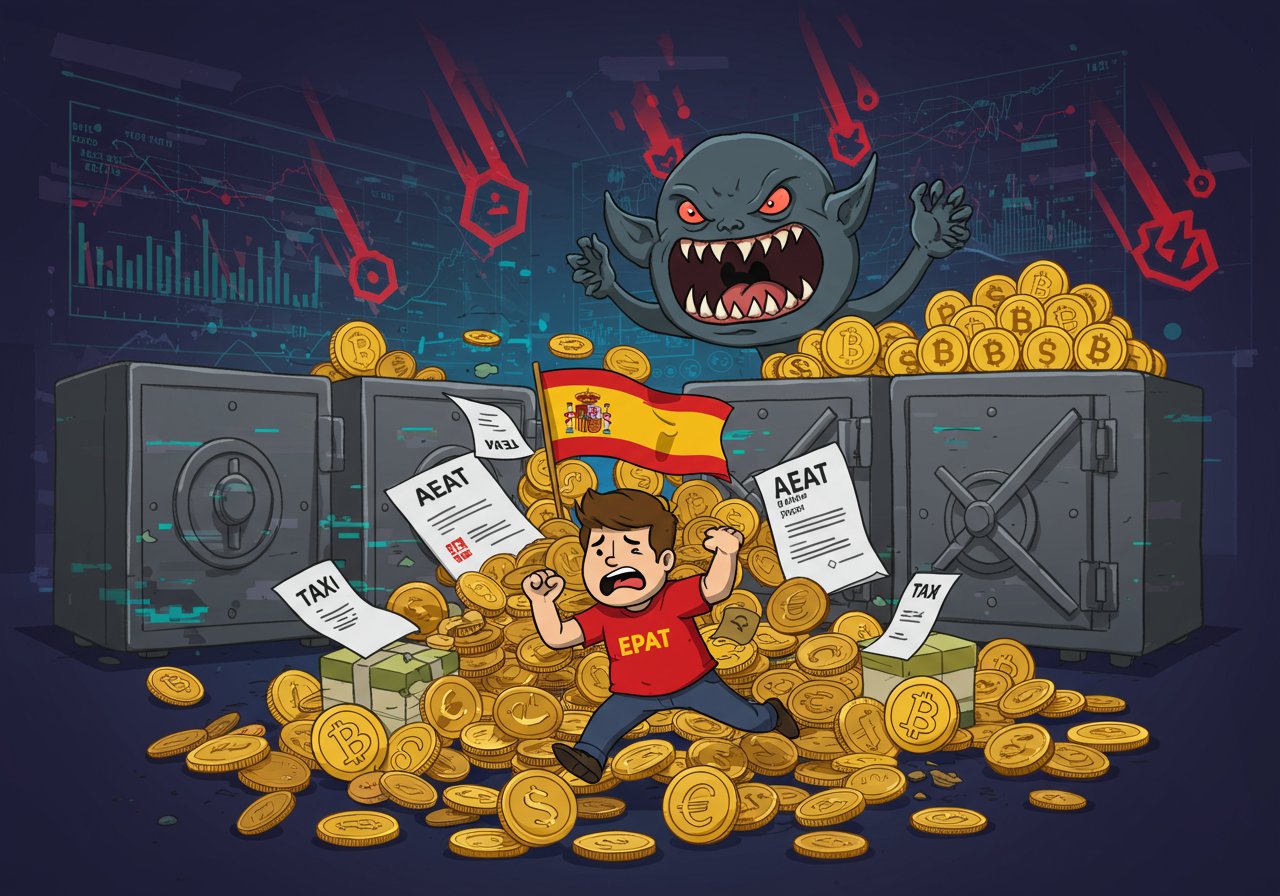
The Spanish Taxman Comes Calling: DeFi Loans in the Crosshairs
In a move that’s sent ripples through the decentralized finance (DeFi) community, a Spanish investor has been slapped with a staggering 9 million euro (approximately $10.5 million) tax bill. The crux of the issue? A crypto-backed loan. This case, reported by Spanish media, underscores the growing pains surrounding crypto taxation and highlights the significant uncertainties still plaguing the DeFi sector.
The Nuances of the Accusation
The investor in question had reportedly declared all their cryptocurrency operations and already paid over $5 million in taxes. The additional tax liability stems from the act of depositing assets into a DeFi protocol as collateral for a loan. Crucially, according to the report, the assets were not sold, and no profit was realized. This detail is pivotal, as it directly challenges the very definition of a taxable event.
Legal Battles Brewing: Questioning the Tax Agency’s Interpretation
A tax advisor cited in the report has criticized the tax agency’s stance, arguing that they are taxing something that doesn’t constitute income from a legal or economic perspective. The advisor further contended that the classification of the asset movement within the DeFi protocol as a realized gain lacked legal basis within Spanish or European legislation. The Agencia Estatal de Administración Tributaria (AEAT), Spain’s tax authority, appears to be treating stablecoin loans and transfers to protocols like Beefy or Tarot as taxable events. This interpretation, according to critics, flies in the face of Article 33 of Spain’s Personal Income Tax Law, which demands an actual economic benefit and variation in net worth for a capital gain to exist.

Implications for Crypto Investors
This situation is a clear indication of the challenges associated with taxation within the crypto space, particularly in DeFi. It raises serious concerns about the application of existing tax laws to novel financial instruments and services. The following points merit careful consideration:
- Clarity and Consistency: Crypto investors need clear, consistent guidelines from tax authorities. The lack of such guidelines leads to ambiguity and potential misinterpretations, as evidenced by this case.
- Defining Taxable Events: The tax agency’s interpretation that simply depositing assets as collateral triggers a taxable event could have widespread implications. Many DeFi activities do not involve realizing profits in the traditional sense.
- Recourse and Appeal: The report indicates that the Spanish system does not offer a fair recourse path if the tax agency makes an error. This creates an asymmetry of power that puts the investor at a severe disadvantage.
The Broader Regulatory Context
Spain‘s tax agency has been actively pursuing crypto holders, issuing hundreds of thousands of warnings in the past years. Furthermore, Spain requires the declaration of all foreign crypto holdings, and the authorities have the power to seize assets to recover unpaid taxes. While the intent behind tax enforcement is to ensure compliance and collect revenues, the current situation raises questions about its fairness and the legality of its interpretation.
This case serves as a critical reminder for crypto investors worldwide. It is imperative to understand your local tax laws and to seek professional advice to navigate the increasingly complex regulatory landscape. As the DeFi ecosystem grows, so too will the attention from tax authorities. Prudent investors must stay informed and prepared for the evolving challenges ahead.


